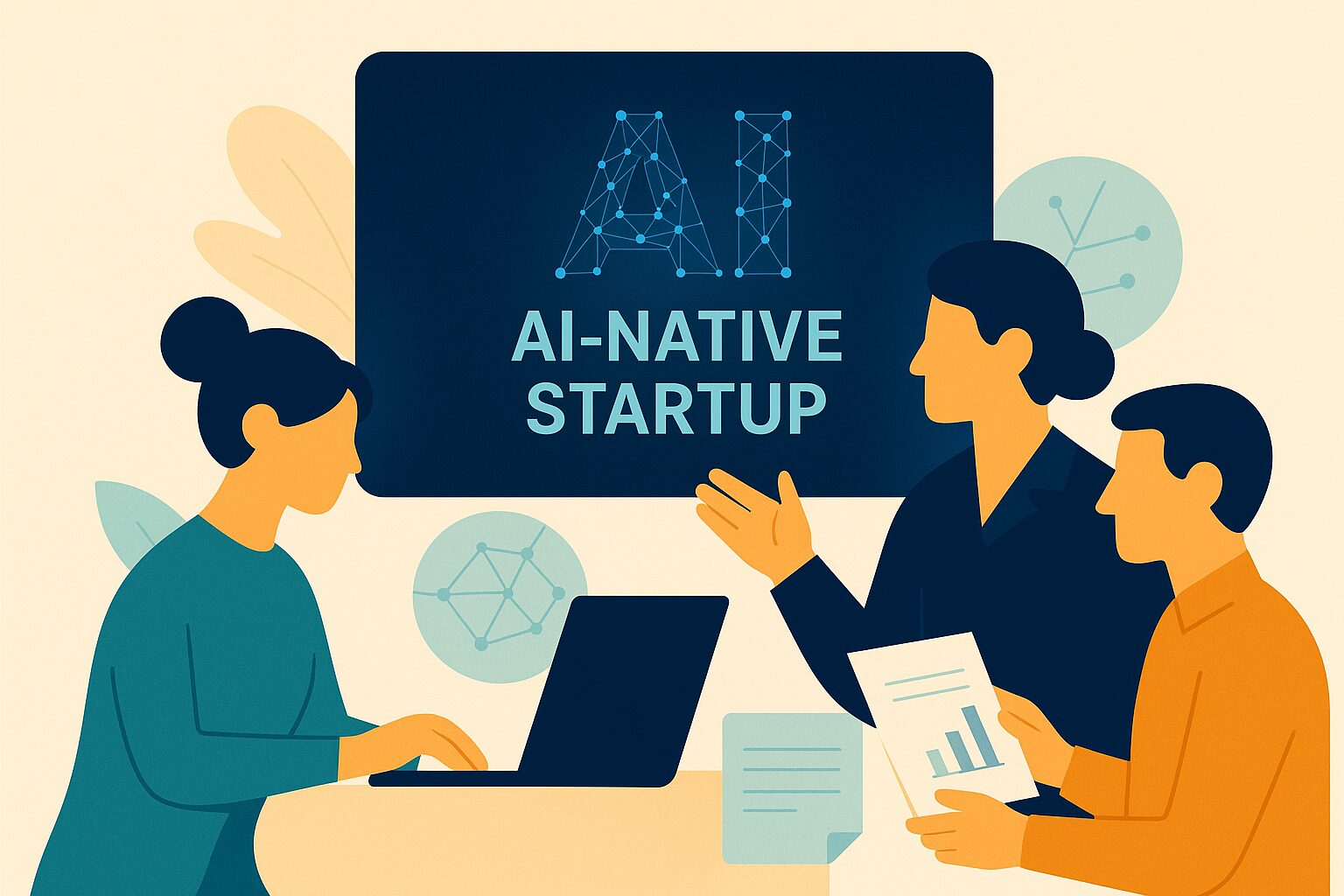A New Era of AI-Enabled Entrepreneurship
In my more than two decades working at the intersection of innovation, venture capital, and economic development, I’ve had the privilege of supporting hundreds of Indiana entrepreneurs, many with bold ideas, but limited access to capital, teams, or infrastructure.
Launching a startup in the past often required significant capital and a team of engineers, marketers, and operations staff. With AI’s rise, we’re witnessing a shift: founders are building companies with smaller teams, faster timelines, and lower upfront costs, and they’re scaling faster than ever before.
Today, artificial intelligence is fundamentally reshaping what’s possible for founders. AI is not just a tool. It’s becoming a co-founder.
According to McKinsey, generative AI alone could add up to $4.4 trillion annually to the global economy, and automate up to 70% of tasks in fields like software development, design, marketing, and customer service. This unlocks enormous potential for entrepreneurs, especially those in capital-constrained or underserved markets.
The Rise of the AI-Empowered Founder
At TechPoint, we’ve met founders who are now using AI to build MVPs without coding, automate their customer service, launch marketing campaigns in hours, and raise capital with the help of AI-generated pitch decks. Lean startups are thriving with AI. Here’s how they are doing it:
1. Rapid Product Development
- AI-assisted coding (e.g., GitHub Copilot, Replit Ghostwriter) enables non-technical founders to build MVPs without hiring full engineering teams.
- Design tools like Canva, with its AI-generated templates and Midjourney for AI art, drastically reduce the need for in-house creative teams.
2. Marketing at Scale
- AI tools like Jasper, Copy.ai, and ChatGPT can generate ad copy, blog posts, SEO strategies, and email campaigns on demand.
- Analytics platforms like Pecan and Hightouch let startups run data-driven marketing with minimal infrastructure.
3. Customer Engagement
- AI chatbots (Intercom, Drift, or custom GPT-based bots) can manage customer service 24/7.
- Founders use sentiment analysis and natural language processing to monitor and respond to user feedback in real time.
4. Fundraising and Strategy
- Founders are using AI to generate pitch decks (e.g., Beautiful.ai), model business scenarios, and even identify investor matches.
- Virtual assistants like Humata and Perplexity help synthesize market research and competitor analysis in seconds.
Here are some real-world examples of AI in action.
- A solo SaaS founder built and launched a B2B productivity tool using only ChatGPT, Notion, and Bubble—scaling to 1,000 users in under 3 months.
- E-commerce entrepreneurs are using AI to design products, write listings, and run ads with no prior experience.
- Healthtech startups are leveraging AI to build HIPAA-compliant apps with patient triage bots and automated insurance verification, all before hiring a developer.
What used to take months and multiple hires can now be done in days by one determined founder and a laptop.
Less Headcount, More Impact
AI is democratizing entrepreneurship in three core ways. It’s lowering the cost of entry, reducing dependency on large teams, and accelerating product development and go-to-market. This AI-first entrepreneurship model is especially meaningful for underrepresented or first-time founders, many of whom I’ve had the honor of supporting over the years. For them, AI offers more than productivity. It offers access.
Traditional startups often aimed to scale through headcount. But as Accenture notes, AI is shifting value creation from “people power” to “capability power.” It’s not about how many employees you have; it’s about how effectively you can deploy intelligence at scale.
What an AI-Native Startup Looks Like
We’re now beginning to see what some call AI-native startups, which are ventures that embed AI not just in their product, but in every part of their operations. As Gartner predicts, by 2026, half of all tech providers will be using AI to enhance workforce productivity, a transformation that startups are already leading.
These startups:
- Build and iterate faster using generative design and AI code generation
- Scale customer relationships with automated yet personalized outreach
- Leverage AI to generate investor materials, market intelligence, and user feedback loops
- Run leaner with smaller, more skilled teams supported by AI agents
The Indiana Opportunity
Indiana is uniquely positioned to lead this shift. We have:
- A growing network of accelerators and incubators
- Top-tier computer science and AI research at Purdue University, Indiana University, and the University of Notre Dame
- A culture of capital efficiency and grit that aligns perfectly with AI-native entrepreneurship.
At TechPoint, we’re actively working to support this next wave of AI-powered founders by connecting them to mentors, capital, and scalable talent pipelines. We believe the future of Indiana’s economy lies not just in attracting big tech, but in empowering small teams to build big things.
If Indiana wants to lead in AI readiness, we must also lead in supporting AI-powered entrepreneurship. This means providing early access to AI infrastructure and tools, funding founder education on AI workflows and models, investing in AI-native incubators and accelerators, and ensuring broad access so AI doesn’t become a tool for the few.
AI won’t replace founders, but it will replace the notion that you need a 10-person team and $1 million to launch. This is a powerful shift and it’s our moment to embrace it. Let’s build the next generation of AI-native startups right here in Indiana.



